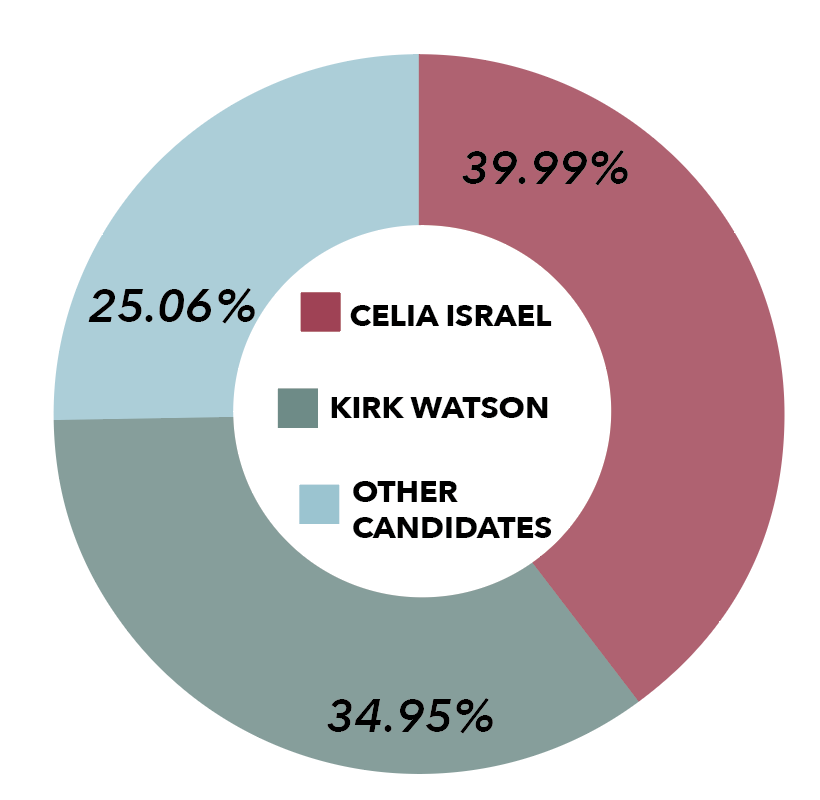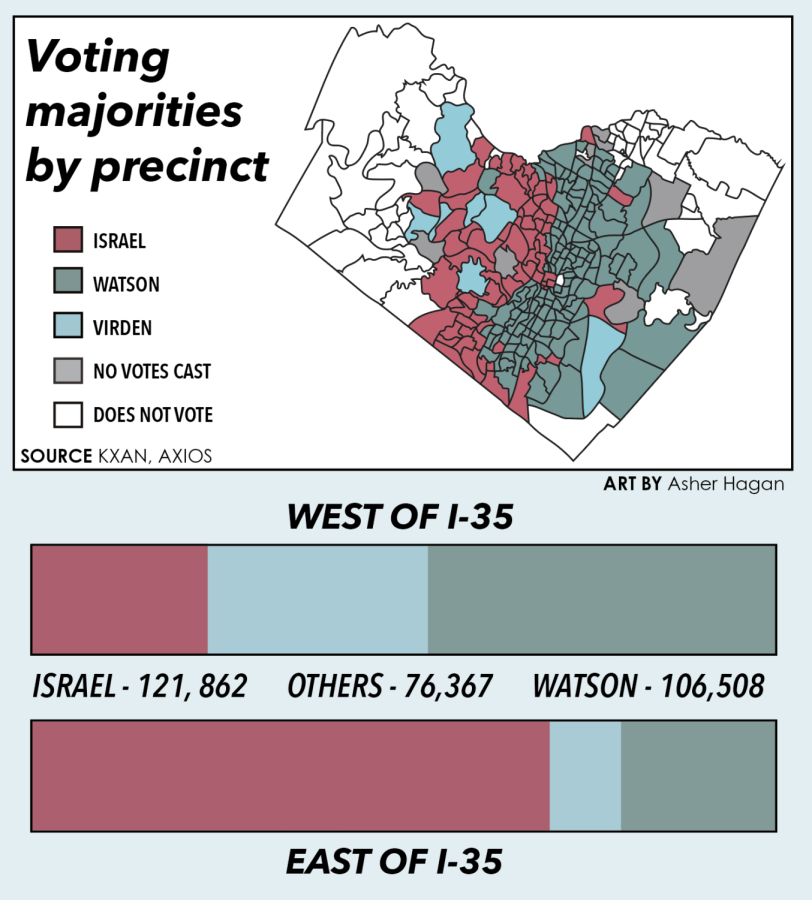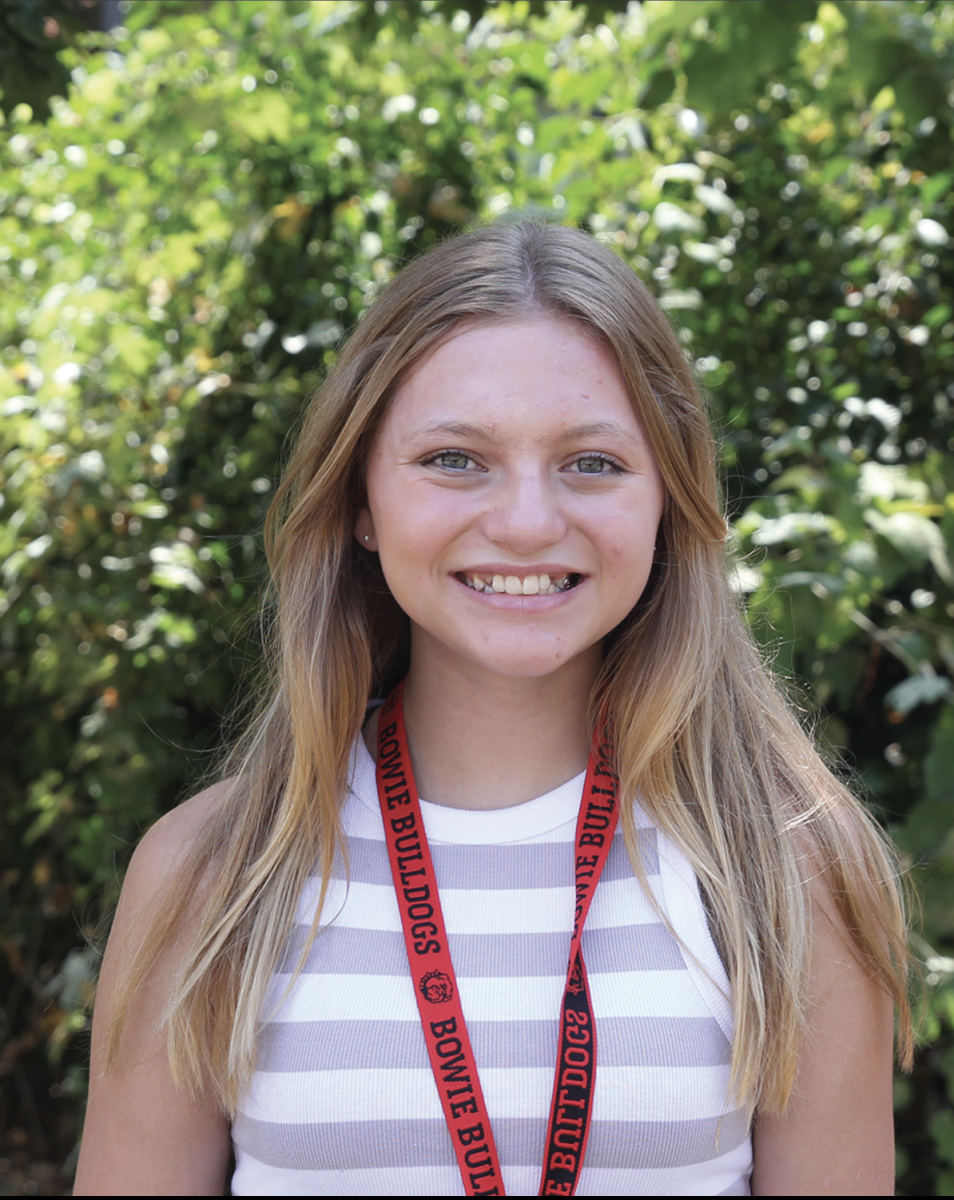Election season presses forward
The race between Dems. Kirk Watson and Celia Israel goes to a runoff
December 22, 2022
Early November, just before Election Day, Street Law teacher Ethan Owens heads to the Bee Caves City Hall. As he arrives at the ballot box, Owens thinks over all the races he’s voting for today: Texas’ governor and candidates for Congress; closer to home, he’s also deciding on Mayor of Austin.
After the 2022 midterms, two notable races have gone to runoffs: Georgia’s Senate race, which ended in Democratic victory, and the race for Mayor of Austin. Owens believes students should pay attention to these races because key issues, such as homelessness and cost of living, will be guided by the winner.
“It’s fun to follow elections, learning how different people approach different problems,” Owens said. “The interesting thing is seeing that, although people might be a part of the same party, they have different ways of accomplishing the same goals.”
Runoffs are repeat elections that function to solve ties or inconclusive results. The ballot is narrowed to the two most popular candidates, so those who voted for smaller campaigns can break the tie. Kirk Watson and Celia Israel are re-running for Mayor of Austin; both are Democrats, but both have different plans for Austin. Their runoff was December 13.
“I think there’s a better process for elections than runoffs,” Owens said. “I do see the merits of it, as it narrows choices, but I prefer rank-choice voting, where there aren’t any runoffs.”
Watson has a history with the position; he served as Mayor of Austin from 1997 to 2001. Watson believes his past position makes him qualified to address important issues. Israel, on the other hand, believes she’s suited for mayor because she’s “a chick with a record,” as an LGBT Latina woman who believes Austin’s strength is based in its diversity.
“I think we need to work on helping the homeless population in Austin, and both have said they’d address those things we need to work on as a city,” senior Mark Sonnier said. “Because Watson has been mayor before, he’s experienced, but Israel would be a new voice, and it’s definitely a good idea to see new ideas in office.”
The election was called to a runoff because no candidate secured 50% of the vote; if nobody wins the majority, an automatic runoff is called. Israel received 39.99% (121,862 votes) and Watson received 34.95% (106,508 votes). The remainder went to four other candidates, who were cut from the ballot for the runoff. One of those cut was Jennifer Virden, who got about 56,000 votes.
“Virden’s supporters will probably run to Watson, because they have similar views,” Owens said. “Both wanted to follow an ‘American Dream’ path, with single family homes and government housing.”
According to Axios, the results of the initial election show an interesting divide. Watson performed better to the west of I-35, where voters tend to be whiter and wealthier. Watson supporters in the west are mainly older citizens who remember his past as mayor. Israel gained more support from younger voters in growing south and East Austin.
“I think the divide is interesting,” junior Aden Bailey said. “I-35 usually shows a split in Austin, so it makes sense that it’s visible with this election.”
Austin currently faces divisive struggles which some believe city leaders should address. Unsustainable population growth, skyrocketing costs of living, and rising homelessness weighs heavy on voters’ minds.
“Austin really struggles with homelessness,” Sonnier said. “I think the Mayor needs to focus on solving those problems, because it’s important for us.”
Since beginning his campaign in July, Watson has raised nearly $358,000, and spent over $1 million. Israel raised about $156,000, and spent just $288,000. Although Watson was better funded, Israel earned more votes during the primary election.
“Even if you have a candidate that’s pushing for good, having a message isn’t enough,” Owens said. “As we’ve seen, there’s lots of good people that aren’t in politics because they don’t have the money; there’s a lot of people that are in politics that shouldn’t be, but they’re able because they have money. Watson raised lots of money, whereas Israel hasn’t, I think that’s part of why she appeals to the east.”
The current mayor, Steve Adler, was not up for re-election. He was first elected in 2014, then re-elected in 2018; having served two consecutive terms, he’s barred from running for mayor until 2026. As mayor, Adler focused on governance, traffic, education, affordability, and the environment.
“Adler seemed to focus on good things that we need to work on, as Austin grows,” Sonnier said. “I haven’t heard much about him, so I’m not confident in forming a strong opinion, but that also means I haven’t heard about him doing anything terrible, so I’m sure he’s done a fair job for us.”
Owens believes students should be invested in elections like this, especially those around Austin, because, as the leaders of Austin aim to resolve the housing crisis, teens and their families will see changes to the housing market; Owens believes, no matter where you are in the city, your home will be affected; therefore, he believes students who can vote, should do so.
“Voter turnout has improved dramatically with this last voting season,” Owens said. “We’ve had the best Gen-Z voter turnout in years, which is amazing. But we can still improve, as it’s a very valuable process to all Americans. Student’s shouldn’t throw away their shot to control the legislation of their futures.”










